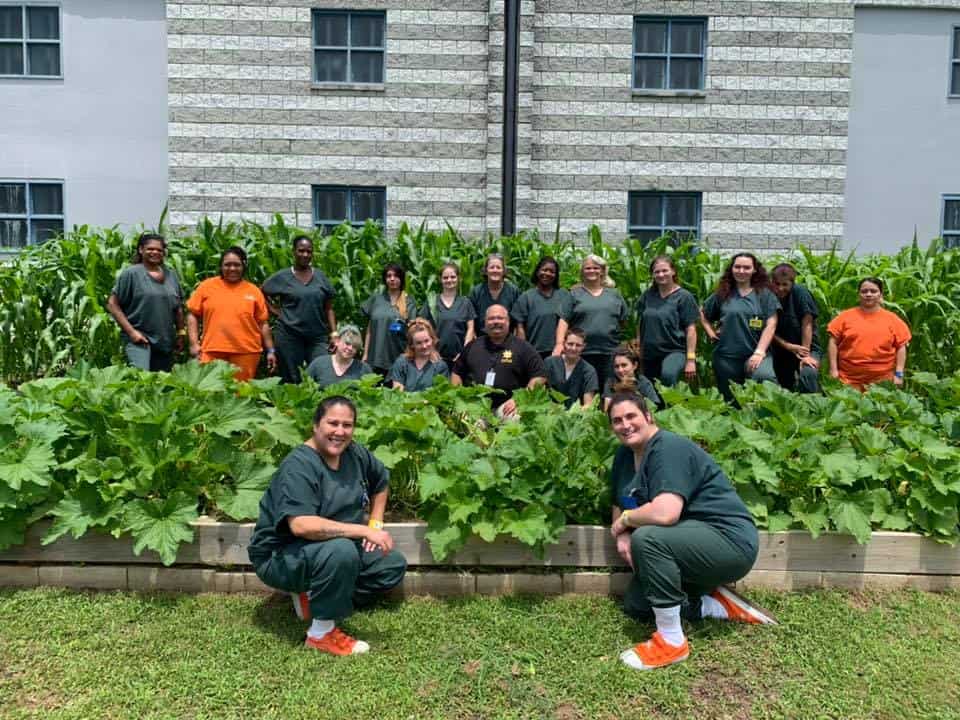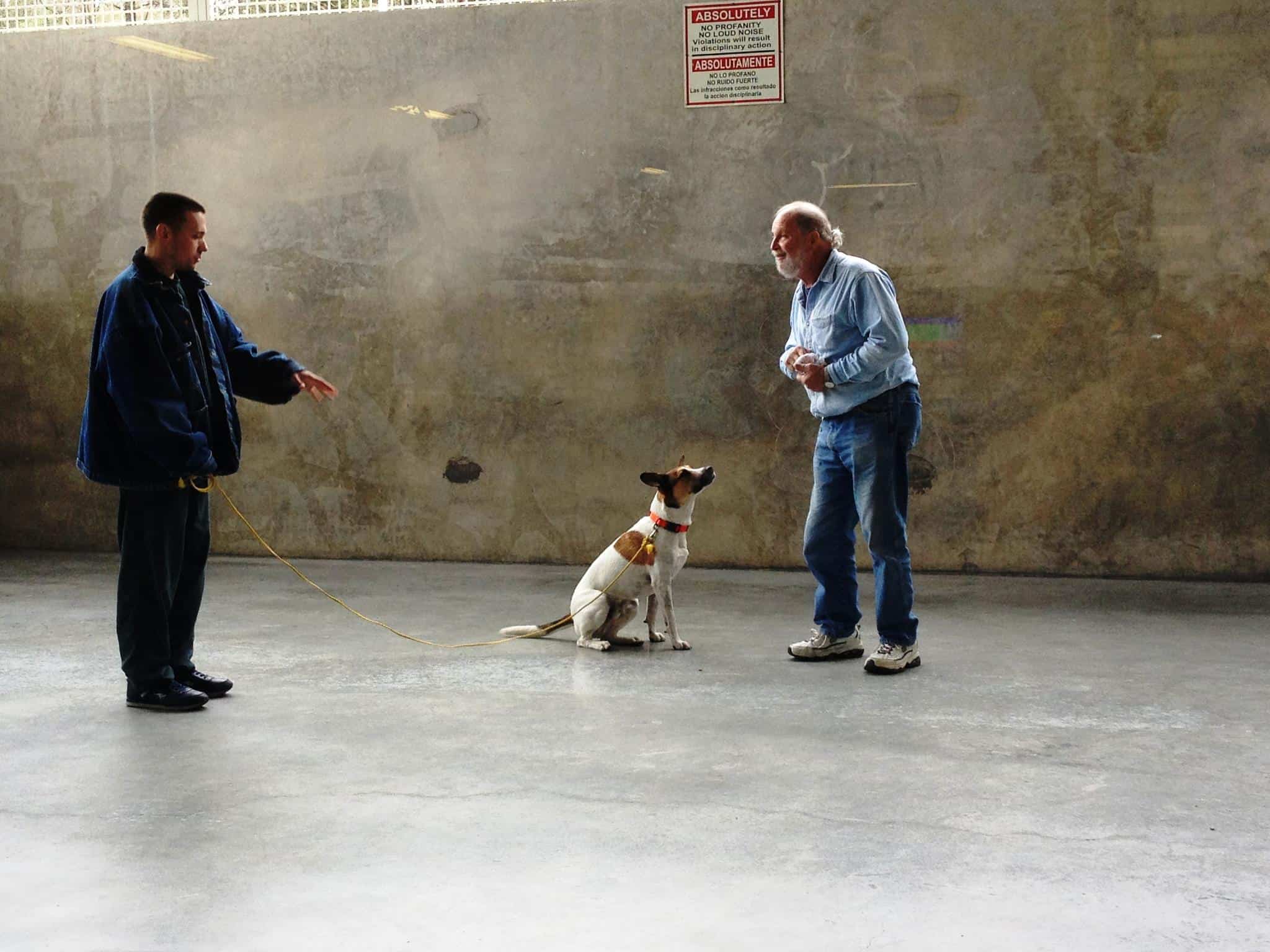On July 10th, 2020, three inmates saved the life of a Gwinnett County, Georgia Sheriff’s Deputy after he suffered a medical emergency.
As the deputy completed his security rounds, the inmates noticed that he appeared to be unwell. Inmates, who were locked down in their rooms, kept a close eye on the well-liked deputy as he completed his check.
As he returned to the guard’s desk in the unit, the deputy passed out, hitting his head on the concrete floor; he sustained a skull fracture.
The inmates in the unit knew they had to help, but what could they do? The inmates closest to the desk could see the dire condition of the officer, and they knew they had to do something. They began hollering for the deputy by name and banging on their doors to rouse him.
A few inmates started making noise. Then the entire unit chimed in to help create even louder noise. They knew they needed to awaken the unconscious deputy. And by now, they could see blood pooling around the man’s head.
The inmates were able to rouse the deputy. He came to long enough to stand up and hit the “unlock” button and sprung open the doors to the rooms in their unit. Almost immediately, he passed out again.
The inmates reacted immediately.
As soon as the doors popped open, three inmates rushed out and began giving first aid immediately. They also used the desk phone and the distress alarm on the deputy’s radio to call for the assistance of other officers in the facility. Help arrived quickly, and the deputy received immediate treatment.
The deputy later reported that he did not know that he was knocked out or had a head injury, but he heard a lot of beating noise that sounded like a drum and thought that an inmate was in trouble. He thought the inmate had needed him, but it turned out that he needed the inmates!
The deputy is resting at home and expects to make a full recovery and return to work as soon as possible. The entire sheriff’s department feels grateful for the assistance of Terry Loveless, Walter Whitehead, and Mitchell Smalls.
They note that it was not the responsibility of these men to look after the deputy, but that it goes to show that human kindness sometimes comes from the places where you would least expect it.
Why would the inmates react so positively to a deputy down?
We were curious to learn what motivated these inmates to rush to the aid of the deputy down situation.
According to Deputy Shannon Voldodav, the Public Information Officer of the Gwinnett County Sheriff Department, their facility offers an abundance of therapeutic programs. They do not simply incarcerate the men and women in their jail. Instead, they create opportunities for anyone who chooses to participate in reshaping their lives.
“We provide many therapeutic programs for inmates housed in the Gwinnett County Jail. If we can release inmates better people than when they arrived, we’ve provided a great service to the community.” ~Deputy Shannon Voldodav
These programs are not mandatory, but many inmates wisely choose to learn how to make long-lasting changes that translate into their lives outside of jail.
Here are three of the programs that the inmates of this facility enjoy.
1 – The Garden Program
Gardening offers many therapeutic benefits, as evidenced by research. Some of these reasons to give gardening a try include the following:
- The activity reduces anxiety and stress
- Gardening improves the mood–how can you be unhappy when you are out in the sunshine?
- It gives the inmates a feeling of accomplishment.
- It’s an excellent exercise.
- Increases self-esteem
- Learning to cooperate and work with others
Both male and female inmates at Gwinnett County Jail may participate in The Garden Program. In partnership with the University of Georgia, inmates receive intense knowledge of gardening. They learn:
- Sustainability
- Soil management
- Irrigation
- Crop management
- Weed control
Many discover a love for working outdoors. Indeed, some graduates now work in agriculture or landscaping after serving their time.
The gardening program creates a win-win for both inmates and the jail administration. To date, the gardeners have produced over 12,000 pounds of corn, tomatoes, eggplants, peppers, and other healthy foods for the jail kitchens, providing a better-balanced diet.
2 – Jail Dogs
A second therapeutic program at Gwinnett County Jail is one they are very proud of, Jail Dogs. Because of the overcrowded conditions at local dog rescues, this program literally saves lives–of the dogs most endangered.
The inmates work with professional canine trainers who donate their time and teach the inmates how to train dogs.
That might sound simple on top of the surface, but the dogs in this program are the most likely to be euthanized by the overcrowded shelter. Dogs arrive at the jail from nightmarish situations. Many are beaten, starved, bruised, burned, and some even have bullet wounds.
As training formally commences, the inmate handler bonds with the dogs to restore their trust in humankind and nurses the dogs back to health. Once the dog is wholly restored, mentally, physically, and behaviorally, they go up for adoption with loving families.
The transformation occurs not only in the dogs, however. It also happens that the inmates learn to be kind, compassionate, patient, and more understanding. Some go on to leave the jail and work at kennels, vet clinics, having learned that they have a knack for connecting with animals.
Since the Jail Dogs program started in 2016, they have rehabbed over 650 dogs, according to Deputy Volkodav.
3 – Gwinnett Reentry Intervention Program (GRIP)
Recidivism is a very real threat to every jail. Inmates serve their time intending to stick to the straight and narrow. But, it turns out that life on the outside is not as cut and dry for many. The Gwinnett Reentry Intervention Program lends a helping hand to inmates upon release, in a partnership with the local United Way chapter.
This program provides newly-released inmates with:
- Mental health services, if needed.
- Transitional housing to avoid homelessness
- Addiction treatment or relapse prevention
- Finding employment
The GRIP program reduces Gwinnett County’s rate of recidivism by as much as 50%, according to Deputy Volkodav.
Final Thoughts on the Three Inmates Who Saved A Prison Guard’s Life
To some, this story sounds remarkable. Many would assume that the guard would have been victimized. However, we know that the power of positivity can work miracles in life–as it did in the injured deputy’s life on July 10th.
Hats off to Terry Loveless, Walter Whitehead, and Mitchell Smalls, the three inmates who save the life of the officer on that day. This is what the Power of Positivity is all about!
















 Community
Community

